If you have high cholesterol, you may be looking for ways to lower it naturally so that you can avoid taking a statin.
While avoiding cholesterol laden foods like meat, dairy and eggs help lower serum cholesterol levels, you can also add foods to your diet that will support heart health.
Studies show that increased fruit and vegetable consumption is associated with many health benefits, including reduced risk of coronary artery disease (CAD.)
But what about fresh fruit and vegetable juice?
In this post, I’ll share with you the research that proves juicing can help you reduce your LDL and triglycerides, and also promotes cardiovascular health in other ways.
Don’t forget to download your free Juice Recipe Cards for High Cholesterol.
You might also want to check out the Healthy Heart Juicing Jumpstart program where you receive 20 printable juice recipe cards, informative guides and a workbook to ensure your juicing success.
LDL Cholesterol and Oxidation
First, a little review on low-density lipoprotein (LDL) cholesterol and how it wreaks havoc in the body. (Stick with me. I promise to get to the juice!)
- Small LDL particles can easily become oxidized
- Oxidized LDL produces inflammation in arteries which promotes hardening of the arteries and increases your risk of having a heart attack or stroke.
“The oxidation of LDL is thought to occur when the LDL cholesterol particles in your body react with free radicals. The oxidized LDL itself then becomes more reactive with the surrounding tissues, which can produce tissue damage. . . Once LDL becomes oxidized, it goes directly within the inner lining (endothelium) of any artery in the body, including the carotid artery, coronary artery or the arteries that supply your legs and arms with blood.” – Verywell.com
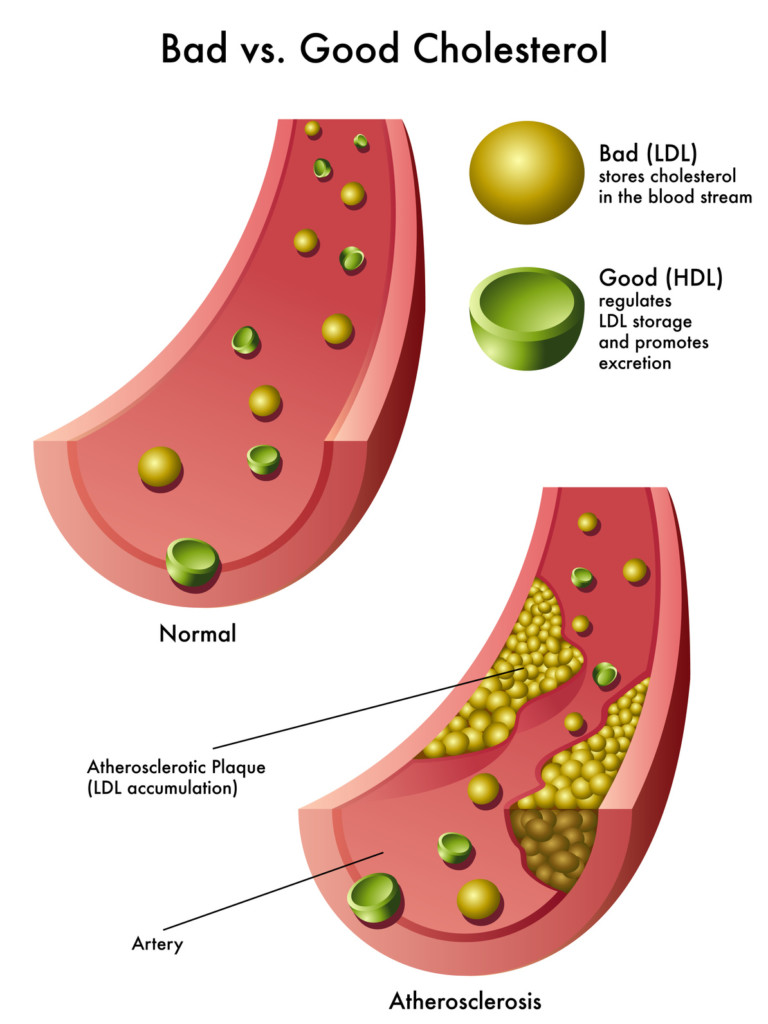 If you consume trans fats, smoke, have poorly controlled diabetes or have been diagnosed with metabolic syndrome, you are more likely to have increased levels of oxidized LDL.
If you consume trans fats, smoke, have poorly controlled diabetes or have been diagnosed with metabolic syndrome, you are more likely to have increased levels of oxidized LDL.
While this is a serious condition, there is much you can do to rapidly improve your health.
You can reduce the damage to your arteries and organs by 1) reducing the amount of LDL in your body, 2) reducing the oxidation of that LDL, and 3) reducing inflammation associated with oxidized LDL.
Here’s how juice can help!
Apple Juice for High Cholesterol
In laboratory studies, fruits and their juices contain phytochemicals that inhibit LDL oxidation, which may account for their protective effect.
But does it also lower LDL when we drink it?
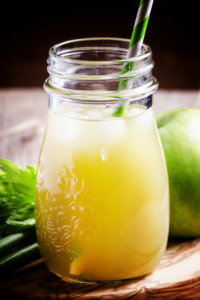
Researchers conducted a randomized crossover trial1 to examine the effect of apples, both whole and juiced.
Healthy men and women added 12 ounces of unsupplemented apple juice or 12 ounces cored whole apple to their daily diet for 6 weeks, then switched to the alternate product for 6 weeks.
Blood samples were taken and compliance was monitored. Both groups ate the same amount of fat, cholesterol, carbs, sugar and calories.
The only real dietary difference was that the whole apple eaters increased their dietary fiber intake by 22%.
Would it make a difference?
The apple juice drinkers saw “an increased ex vivo copper (Cu++)-mediated LDL oxidation lag time by 20% compared with baseline.”
The researchers concluded that moderate apple juice consumption provides antioxidant activity in the body.
“In view of the current understanding of CAD, the observed effect on LDL might be associated with reduced CAD risk and supports the inclusion of apple juice in a healthy human diet.”
Boom! Fresh apple juice can reduce your LDL oxidation and may therefore reduce your risk of heart disease.
Carrot Juice
Both carrot and apple juice contain soluble fiber. Soluble fiber binds with bad cholesterol and carries it out of your body. Pretty neat.
A cup of carrot juice provides 34% of the daily recommended vitamin C. Vitamin C may help metabolize cholesterol so your body can get rid of it.
The concentrated beta-carotene in carrot juice is a powerful antioxidant, which reduces LDL oxidation, which in turn may lower your risk of cardiovascular disease.2
Citrus Juice
Grapefruits and lemons are loaded with antioxidants and pectin, a heart-healthy soluble fiber.
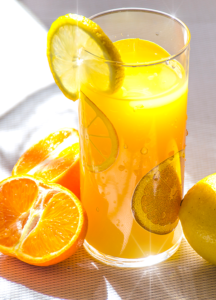 Citrus Juice
Citrus Juice
Lemons – the d-limonene in lemon peel has been shown to lower triglycerides.3
Grapefruit – This citrus fruit contains a flavonoid called naringenina, which has been shown to lower cholesterol and triglycerides, and prevent plaque build-up in arteries.4 Fresh grapefruit juice has been shown to be just as beneficial as the whole fruit. NOTE: If you are on blood pressure lowering medication or cholesterol lowering medication, avoid grapefruit. (Click here to check your drug interactions.) Use lemons instead.
Kale Juice
In one study, men with total cholesterol over 200 mg/dL drank 5 ounces of kale juice a day for 12 weeks. Kale juice lowered their LDL, raised HDL (a bonus!,) and reduced their risk of coronary artery disease.
Kale is also a concentrated source of antioxidants and anti-inflammatory nutrients, which further helps promote cardiovascular health.
Broccoli Juice
While you might not think of juicing broccoli, it can be a useful way to use up broccoli stems. Like apples, broccoli contains soluble fiber that helps your body remove bad cholesterol. Cooking can reduce the amount of available soluble fiber, so adding some broccoli to your fresh juice is a great option.
Fresh Grape Juice
The flavonoids in grapes have been proven to reduce bad cholesterol and keep arteries clear, reducing the risk of heart disease. (And fresh grape juice is delicious!)
If you have elevated cholesterol, you’re probably ready to make some juice!
Combined with a healthy diet low in dietary cholesterol and high in plant foods, fresh fruit and vegetable juices can help you improve your heart health and reduce or eliminate the need for prescription medications like statins.

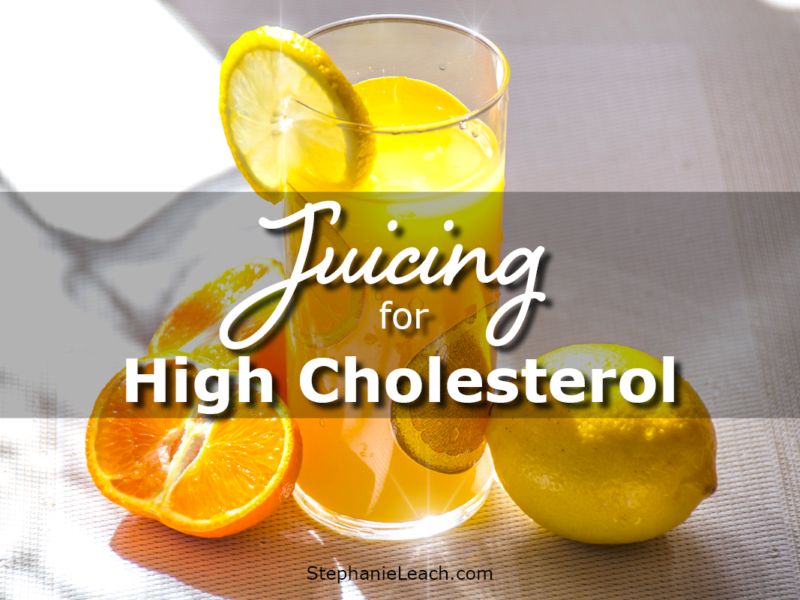
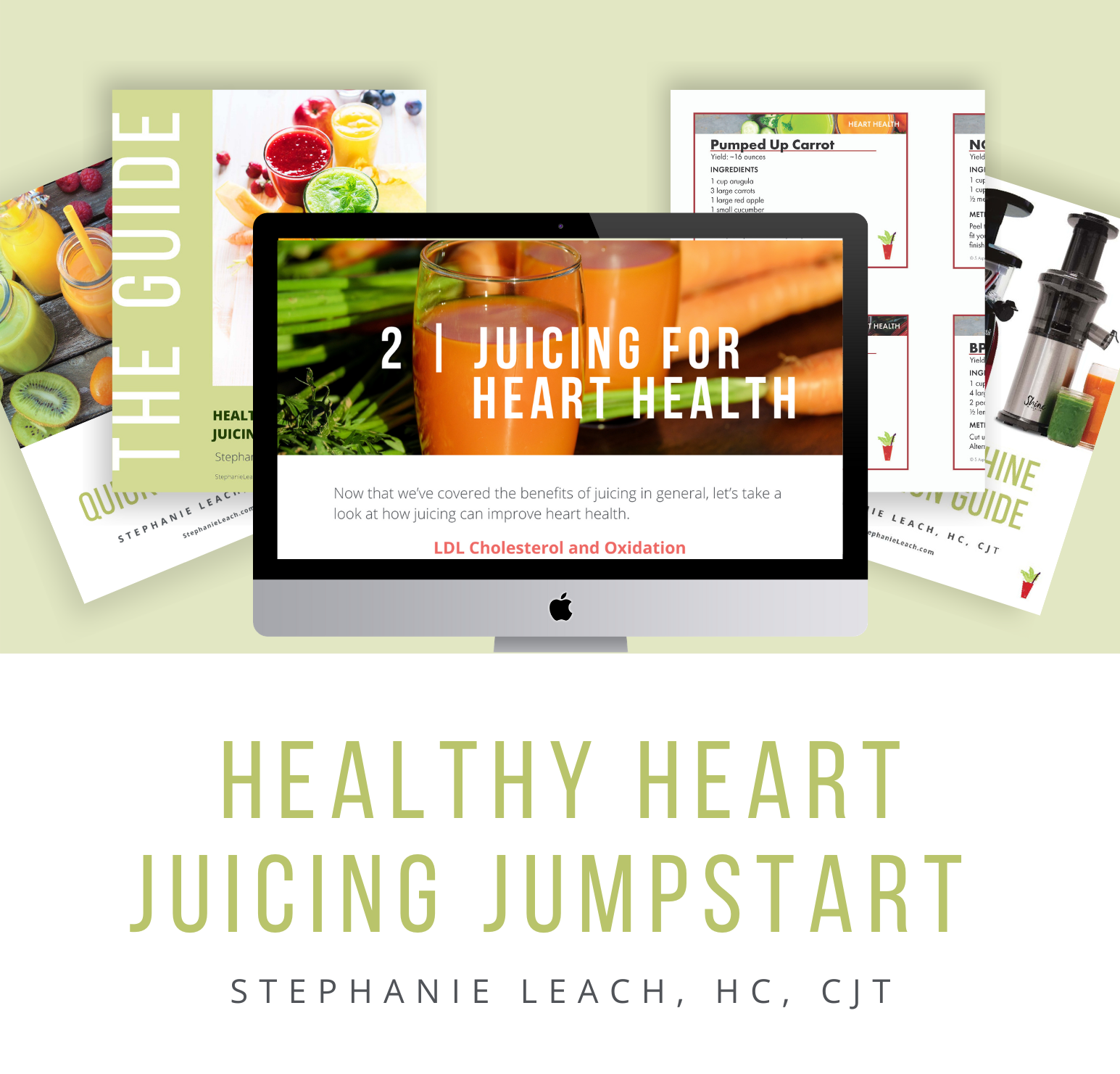

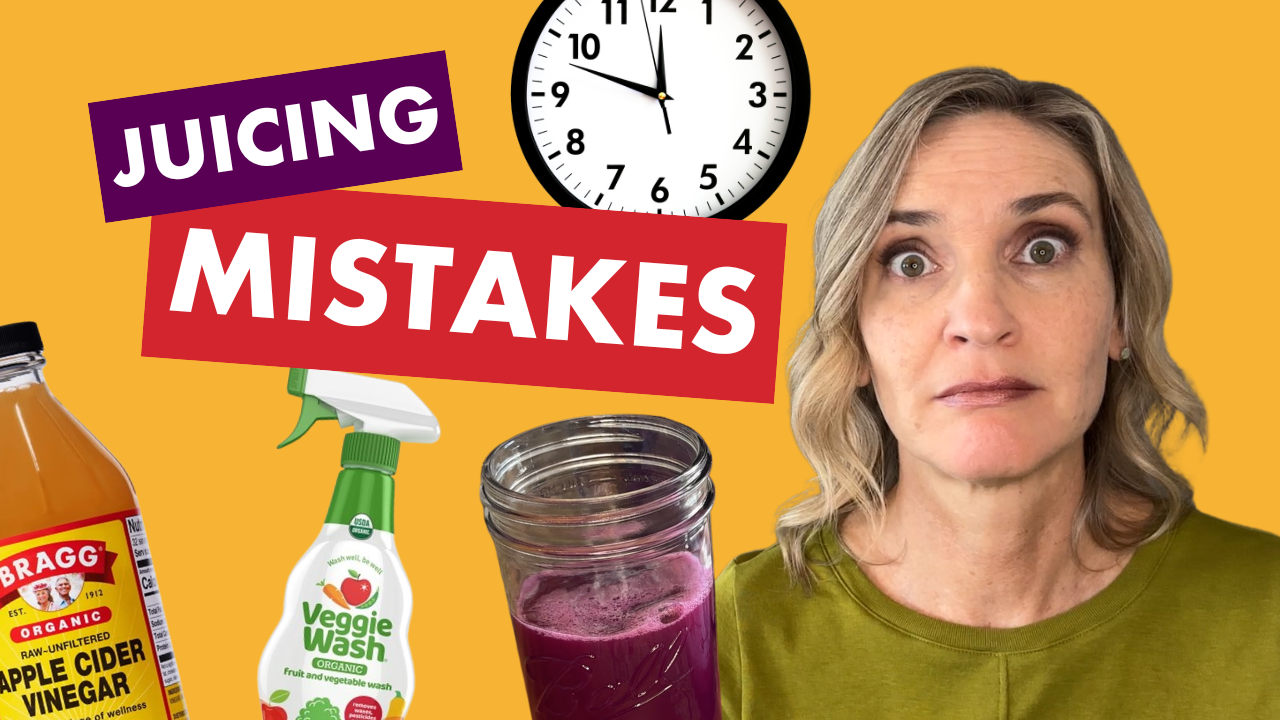
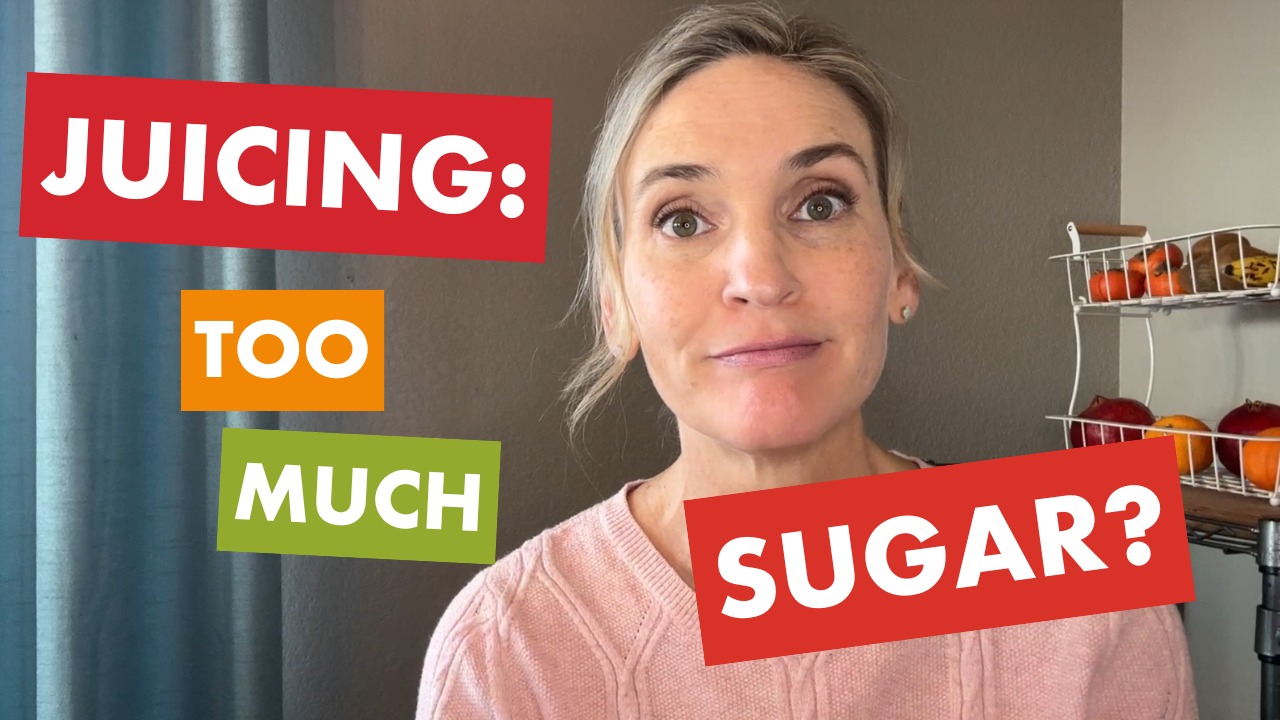


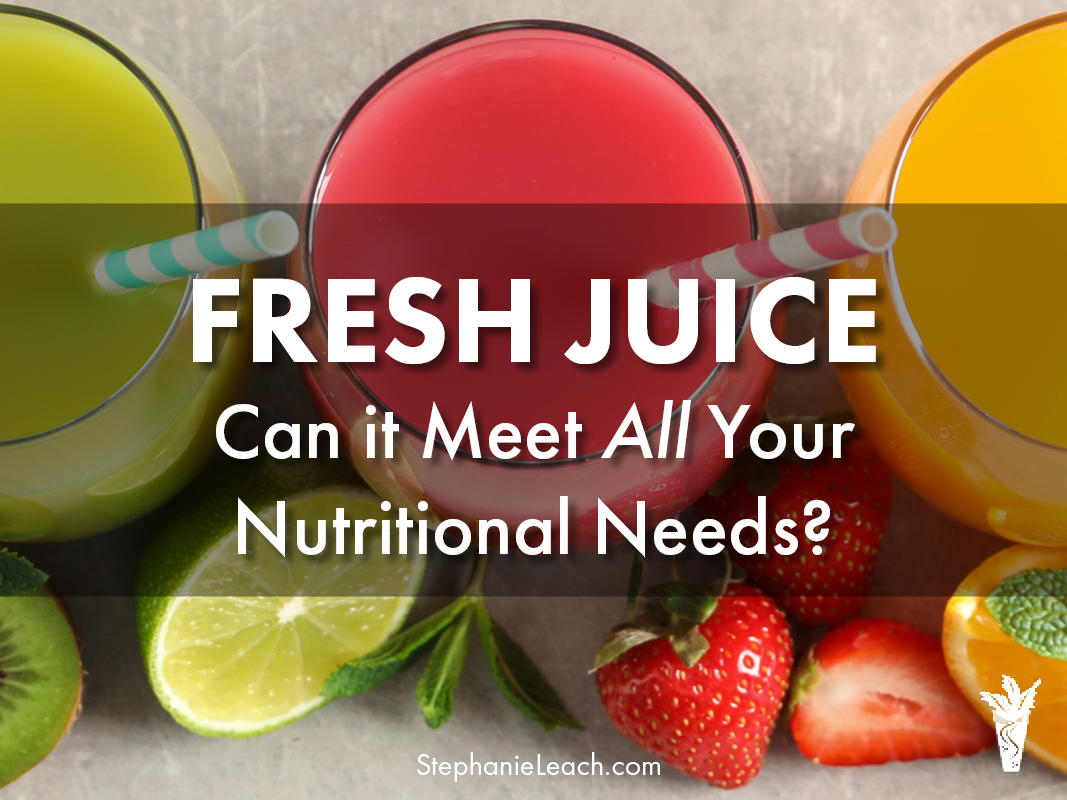
Leave A Comment